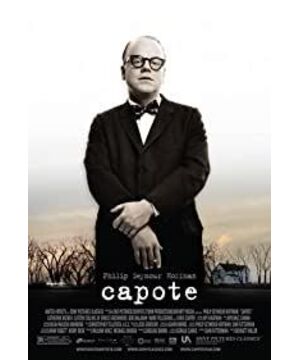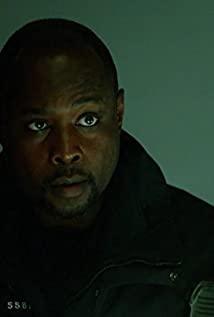1962's "To Kill A Mockingbird" (To Kill A Mockingbird), the story of the film took place in 1932, in the form of the memories of a little girl who was only 7 years old at the time, the main line wrote that her father was a falsely accused of being a rapist. The defense of the black man, after the failure, the black man committed suicide because he tried to escape, and the second line wrote that the neighbors, who had always been very afraid of the brother and sister, came to the rescue when the bad guy who falsely accused the black man came to seek revenge for his father to trouble the two brothers and sisters. This structure puzzled me a lot, because it was so heavily depicted in the world of children's confusion, and everyone said it was an anti-racist novel. Now I understand that this view is narrow, this work is not just about racism, but about human nature. Father's line is written in a positive way, an ordinary small town lawyer, but shining with many brilliance of human nature. He represents love, kindness, justice and justice. He has excellent qualities such as tolerance, patience, persistence, etc. of bravery. The sub-line reflects the loss of human nature from another side, that is, discrimination and prejudice. The two children's definition of neighbors has always been negative, but it turns out that they are both wrong. Of course, they are only children, but adults are discriminated against. The prevalence of narrow-mindedness and prejudice suggests that they are no better than children. The key to the ingenious art of the film is to write these simple and heavy human experiences and feelings from the perspective of children, which enhances the sensibility, reduces the didactic meaning that may be brought about by rational thinking, and greatly wins the audience's emotional input.
The above two classic old movies that I introduced without thinking are closely related because of one name. This name is not Gregory Peck, although he happens to be the hero of "Roman Holiday", another masterpiece of "Roman Holiday" by Audrey Hepburn, the heroine of "To Kill a Mockingbird" and "Breakfast at Tiffany's". The name is Truman Capote. Capote is the original author of the "Breakfast at Tiffany's" novel, while his female close friend Harper Lee wrote the original novel "To Kill a Mockingbird". Not only that, but it was suspected that To Kill a Mockingbird was actually written by Capote and published under the name Harper Lee, who never wrote another novel.
But the most important work of Capote's life, and the last book he wrote, was called In Cold Blood. This work, published in 1966, was remade into a film the following year, and the film also became a classic of crime genre films in the history of American cinema. The film recounts in great detail the cold-blooded murder of two parole criminals on a farm in Kansas, as well as their arrest, trial and execution. The interest of the film is not in the crime and solving the case itself, but in the profound reflection on human nature and the reflection on the influence of law, society and family environment on children's growth. Two cold-blooded criminals, one named Dick and the other named Perry, Dick has no sense of morality and boldness, and Perry is slightly kind and disgusting, but his childhood has psychological trauma left by his father. They were originally robbery, but found that they didn't have the huge amount of cash they expected, and Perry suddenly broke out inexplicably, killing the family of four quickly and brutally. Oddly enough, he even stopped Dick from raping the teenage girl before. After the incident, the two casually planned to go to Mexico, stealing cars, swindling checks, planning to make money and killing their lives, and collecting soda bottles with a pair of homeless grandchildren to earn travel expenses. In fact, the process from detection to arrest, interrogation, and conviction was quite simple. However, the two spent five years on death row and were hanged after repeated appeals and extensions.
With the above background knowledge, watching the 2005 Oscar-winning film "Capote" (Capote) will not be confused. Otherwise, if you watch "Capote" coldly, not only will you not know what Capote's origins are and what awesome works he has written, you will also wonder what the woman named Harper Lee, played by Catherine Keener beside him, is doing. Yes, and will be mad at the sissy character of the leading actor Philip Seymour Hoffman, wondering why he was able to win various acting awards including the Oscar for best actor in 2006 for this role (Capote is gay).
The film revolves around Capote's process of writing "In Cold Blood," delving into the writer's lesser-known spiritual world, revealing the emotions, mental stress, and attitudes Capote experienced during his years-long study of contacts with criminals subtle changes in . The most wonderful value of these changes is that Perry, one of the killers that Capote contacted for writing a book, initially hoped to have enough time to understand the inner world of the criminal, and to discover the spiritual connection between himself and the killer. He is full of sympathy and strives to obtain a reprieve and appeal for the two death row inmates. During this period, he has also continued to take advantage of his status and wisdom to use friendship as a bargaining chip. In fact, he threatened Perry to give him full Shows the real inner world, especially the psychological state on the night of the murder. However, after he has basically obtained the basic materials necessary for writing the book, he is troubled by the fact that the two death row inmates cannot be executed because of the repeated probation appeals, which makes him unable to finish the book. , he even began to pray that the appeal failed and that Perry, who he regarded as his only friend, would return to the West sooner. Capote was also very distressed after discovering his selfishness and evil thoughts. After the execution date was set, he still dared not face Perry and all his friends, but his inner remorse still drove him to see Perry for the last time, in front of Perry. Feeling ashamed, watching the execution become a deadly torture to his soul, he realizes that he could have done more to save Perry but was unwilling to do it.
This kind of self-blame, shame and torment seems to haunt Capote all the time and can't disappear, causing him to never find his inspiration and desire to create again. After "Cold Blood", Capote failed to complete any work. On the title page of his last unfinished book he inscribes: "It is not unanswered prayers that make more tears, but prayers that are answered." Apparently, this refers to the fact that he had prayed out of selfish wickedness. Perry's early execution.
View more about Capote reviews










